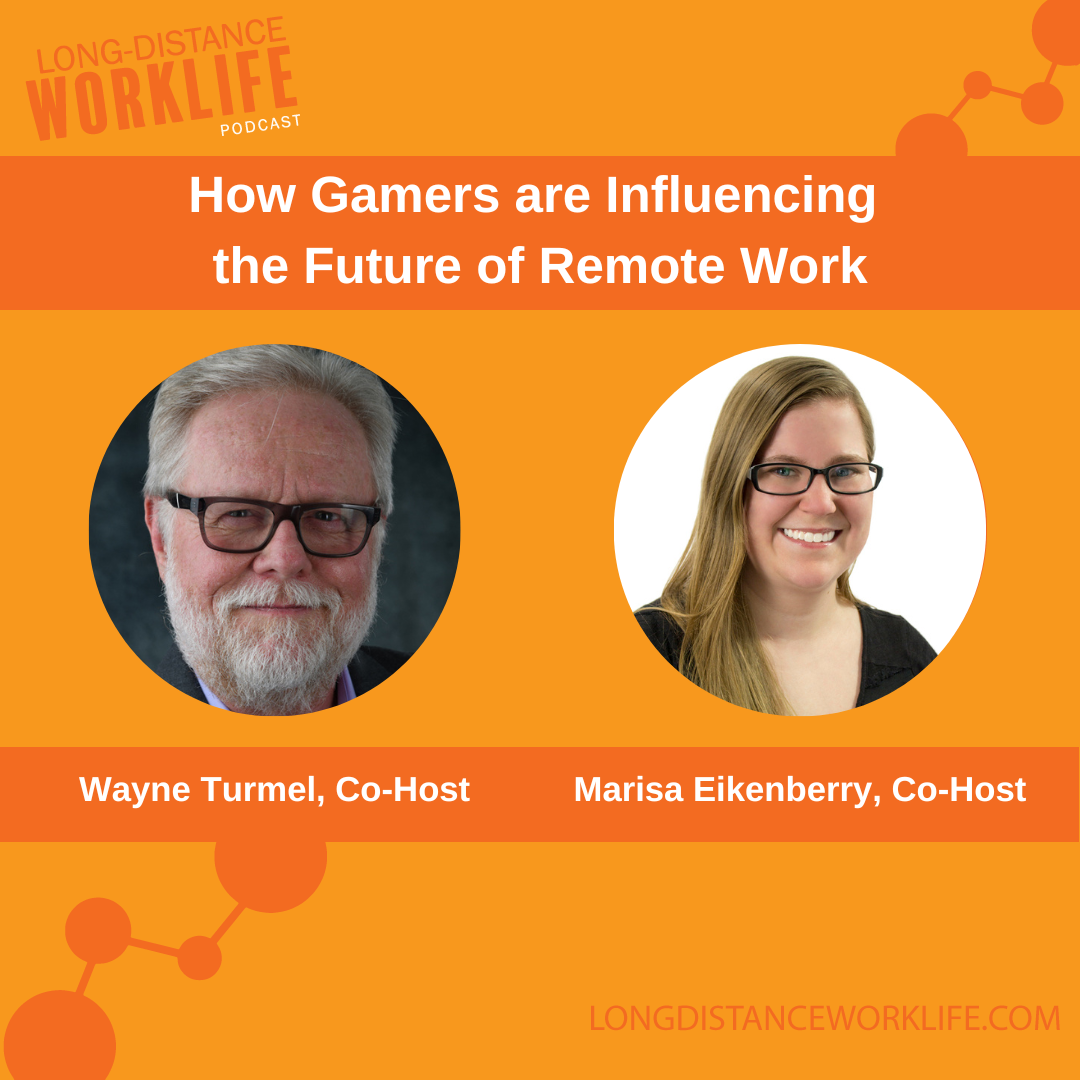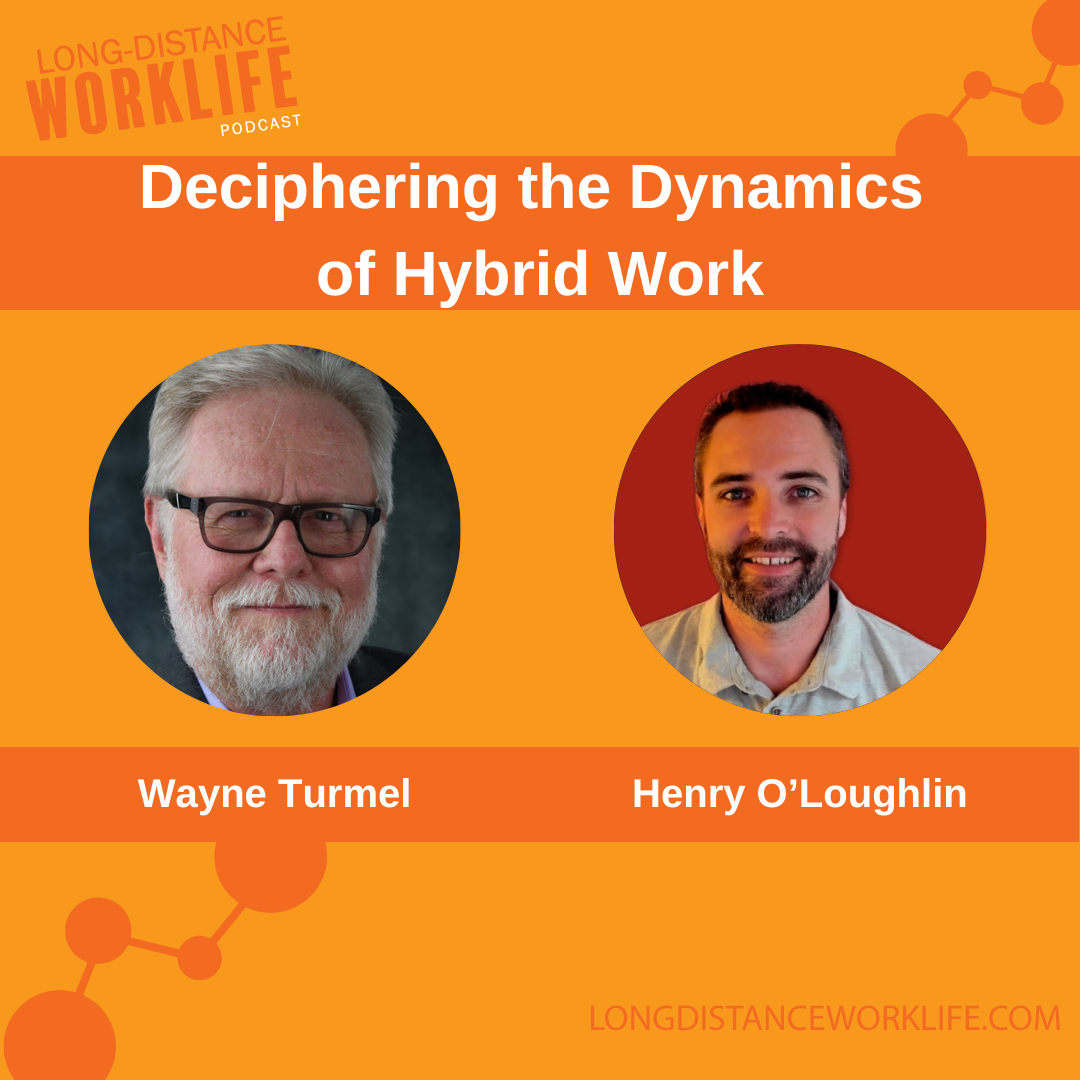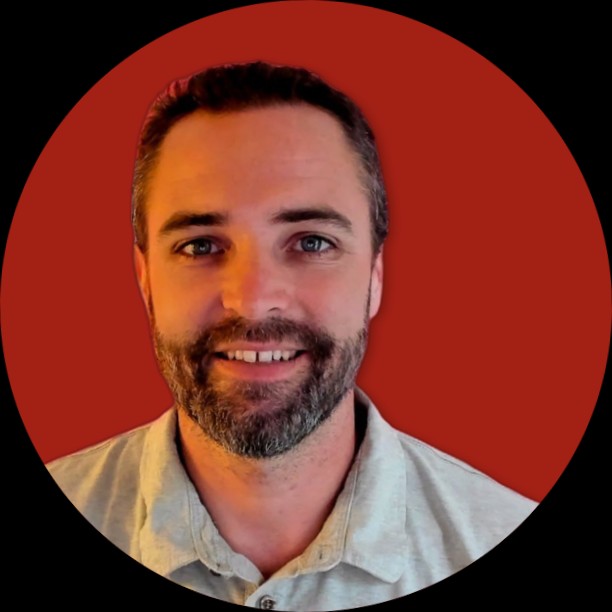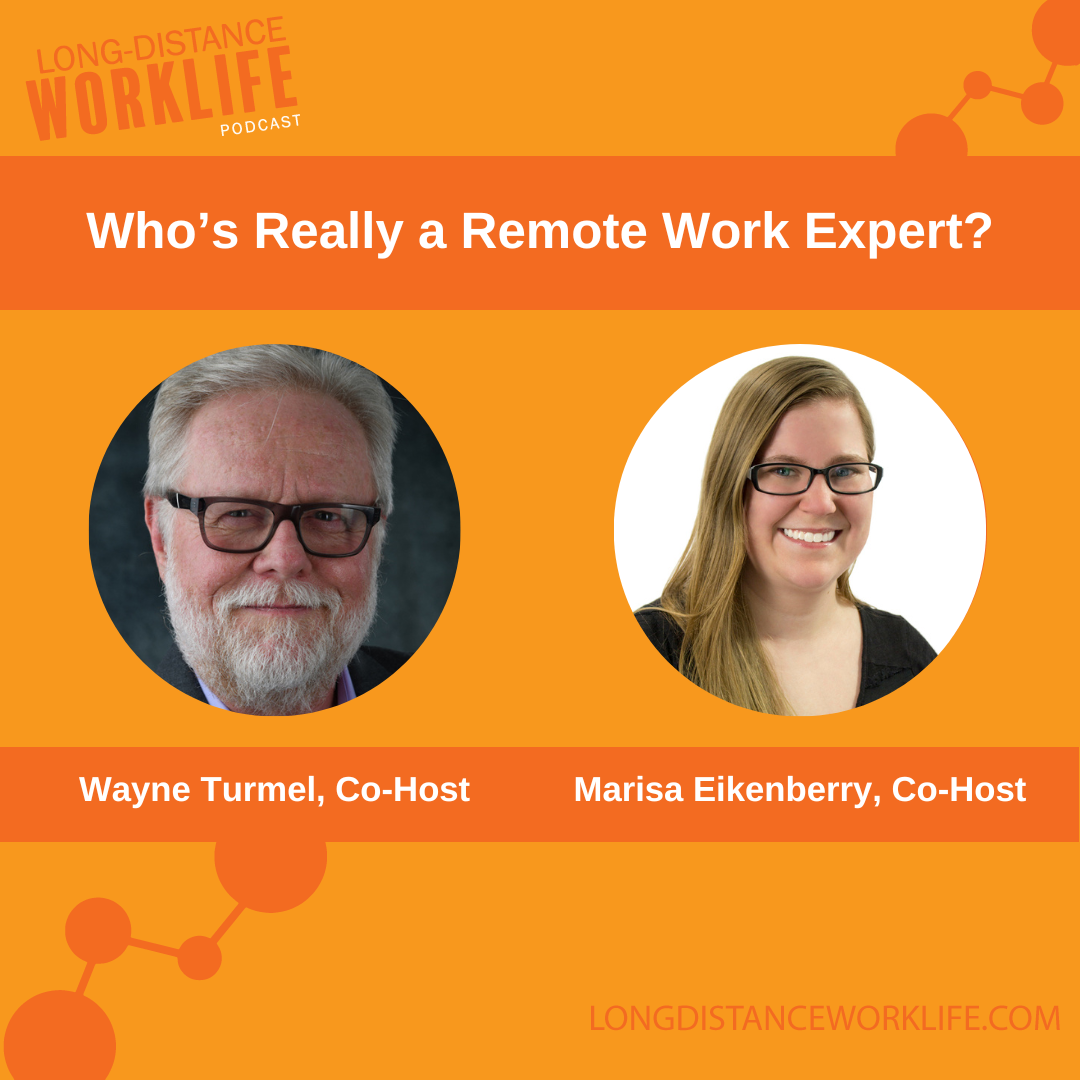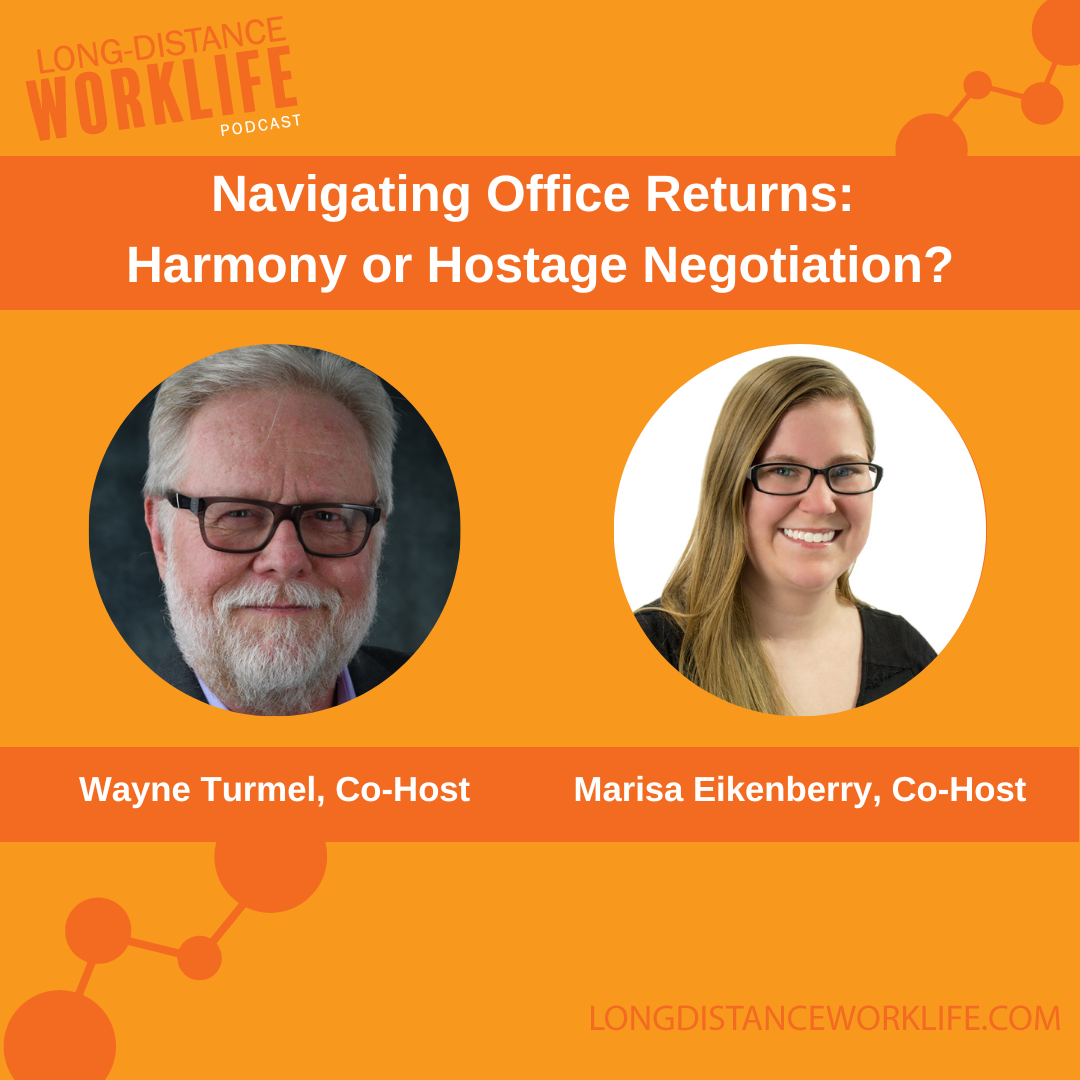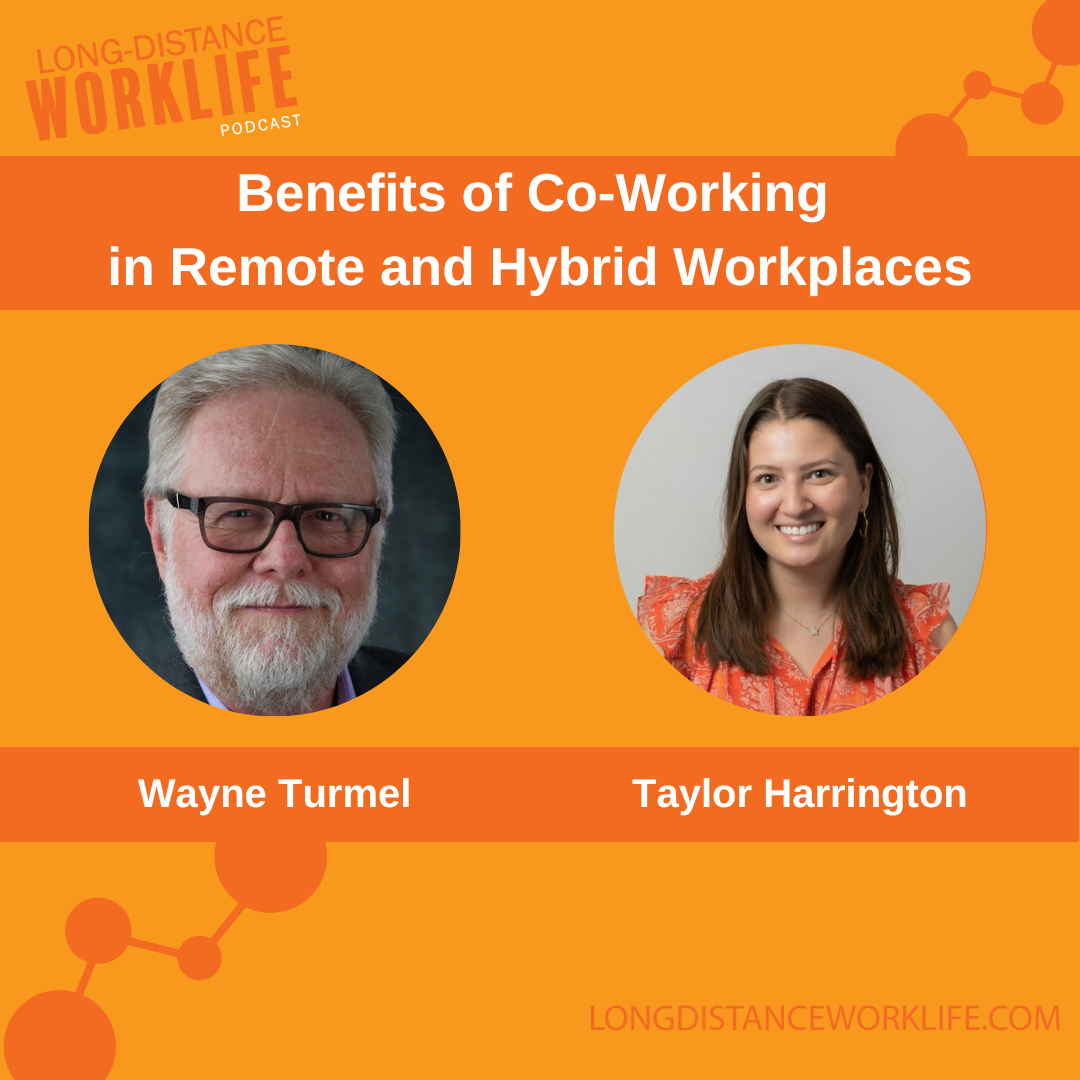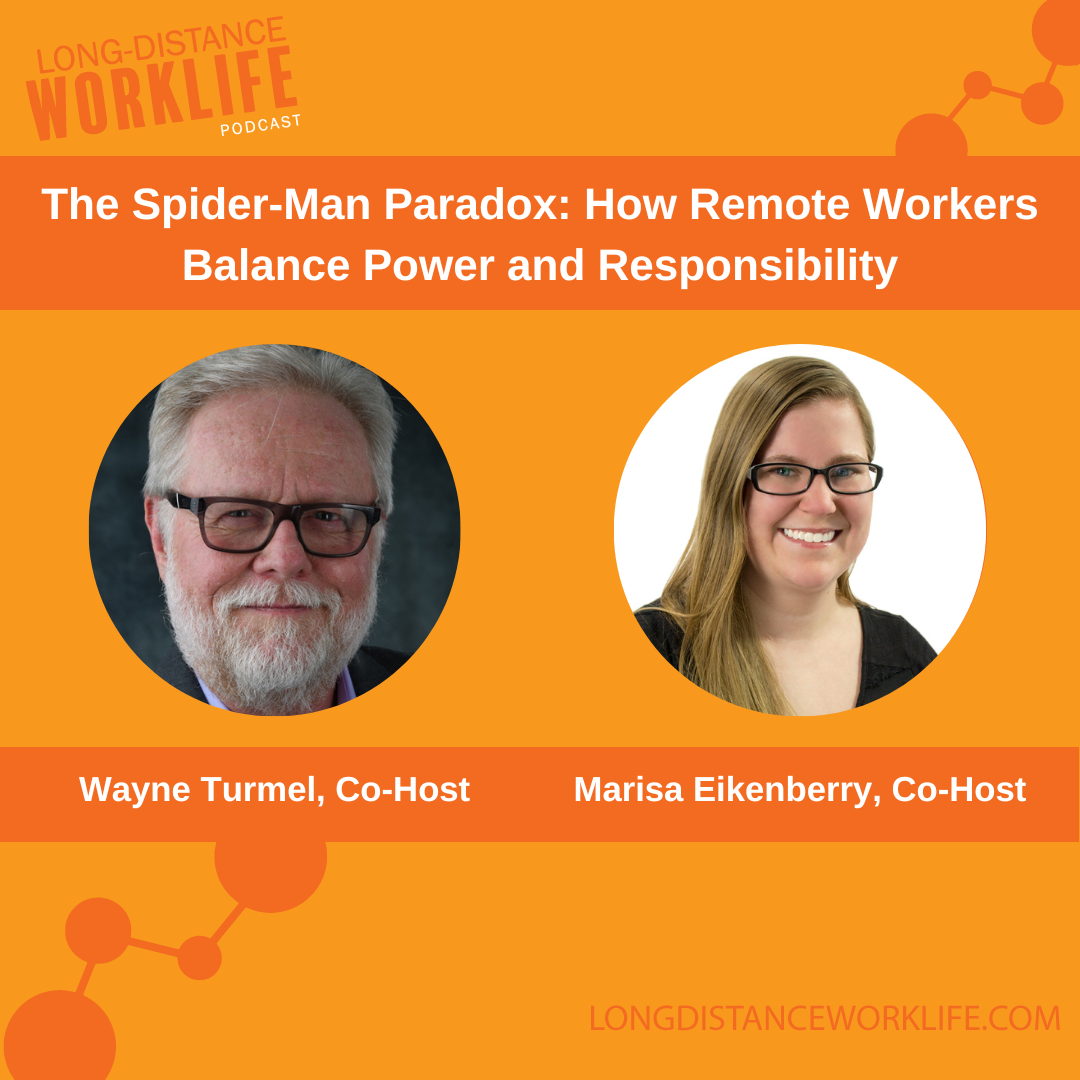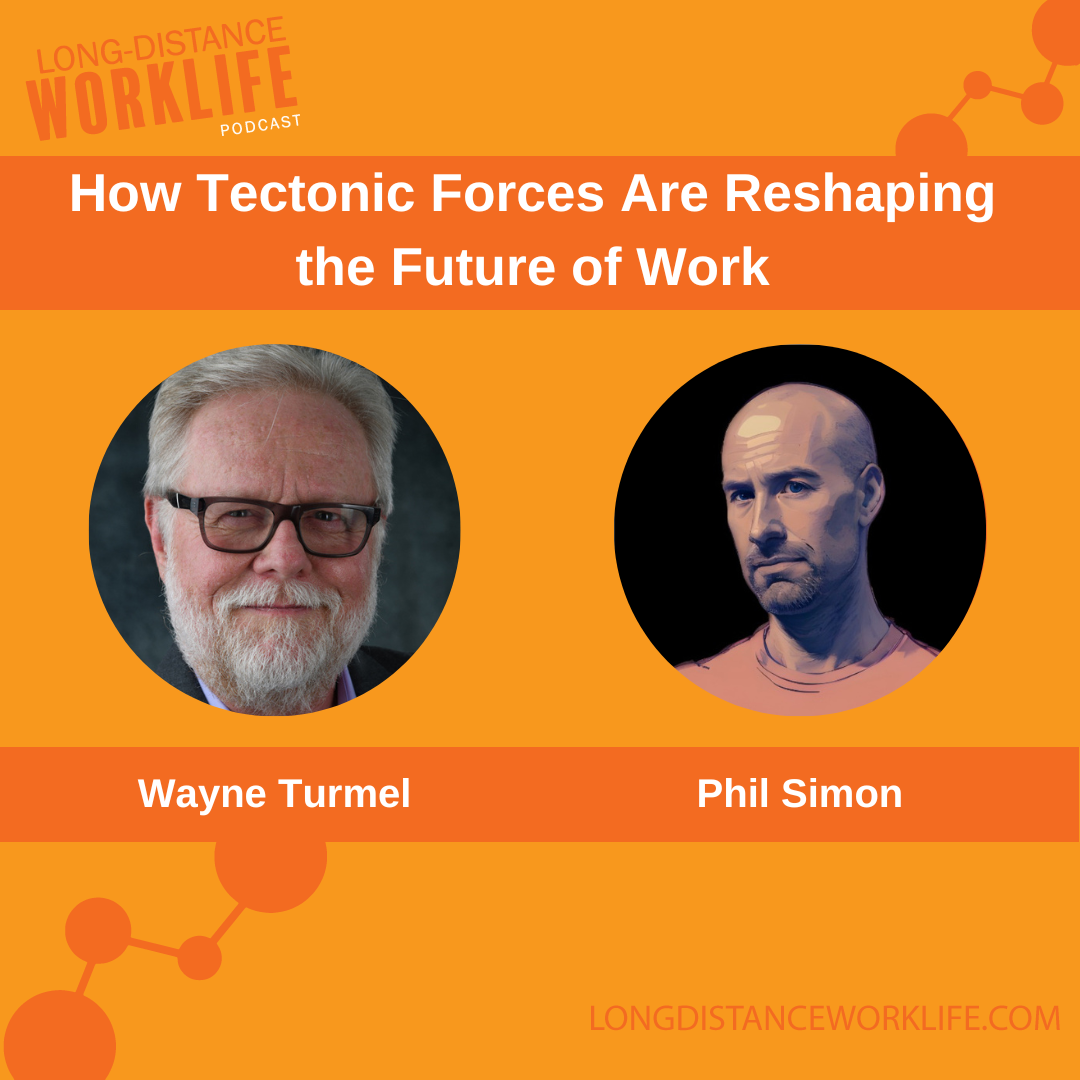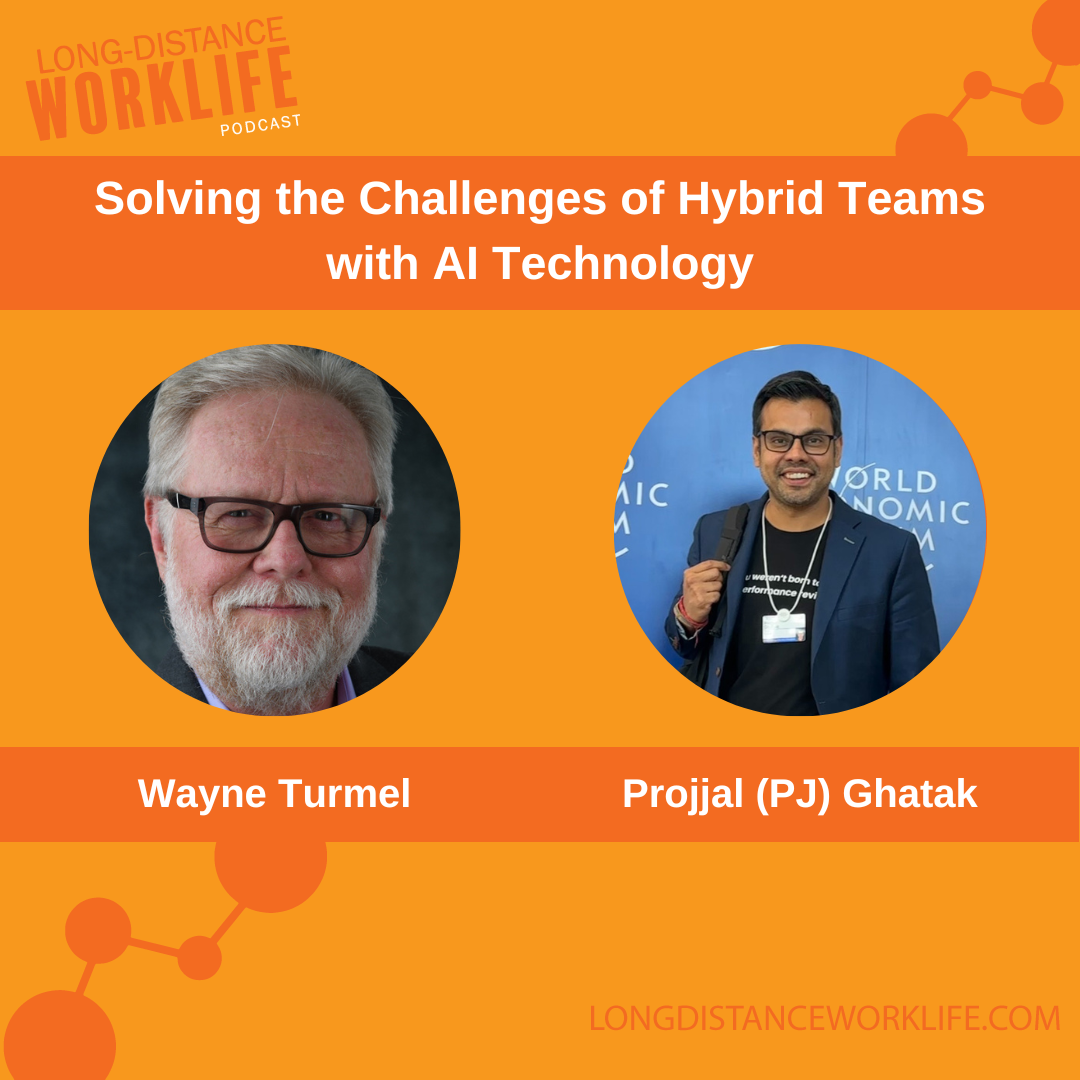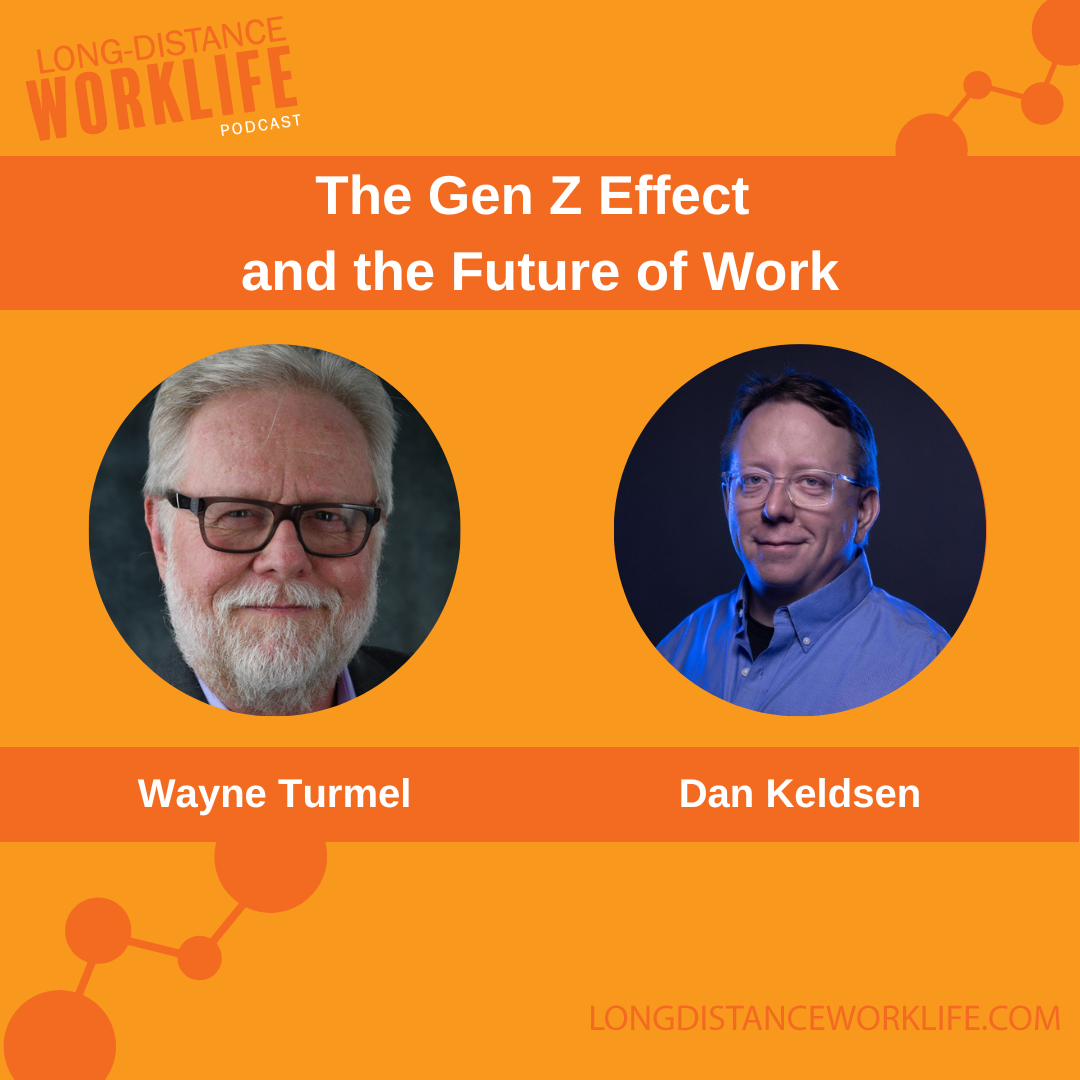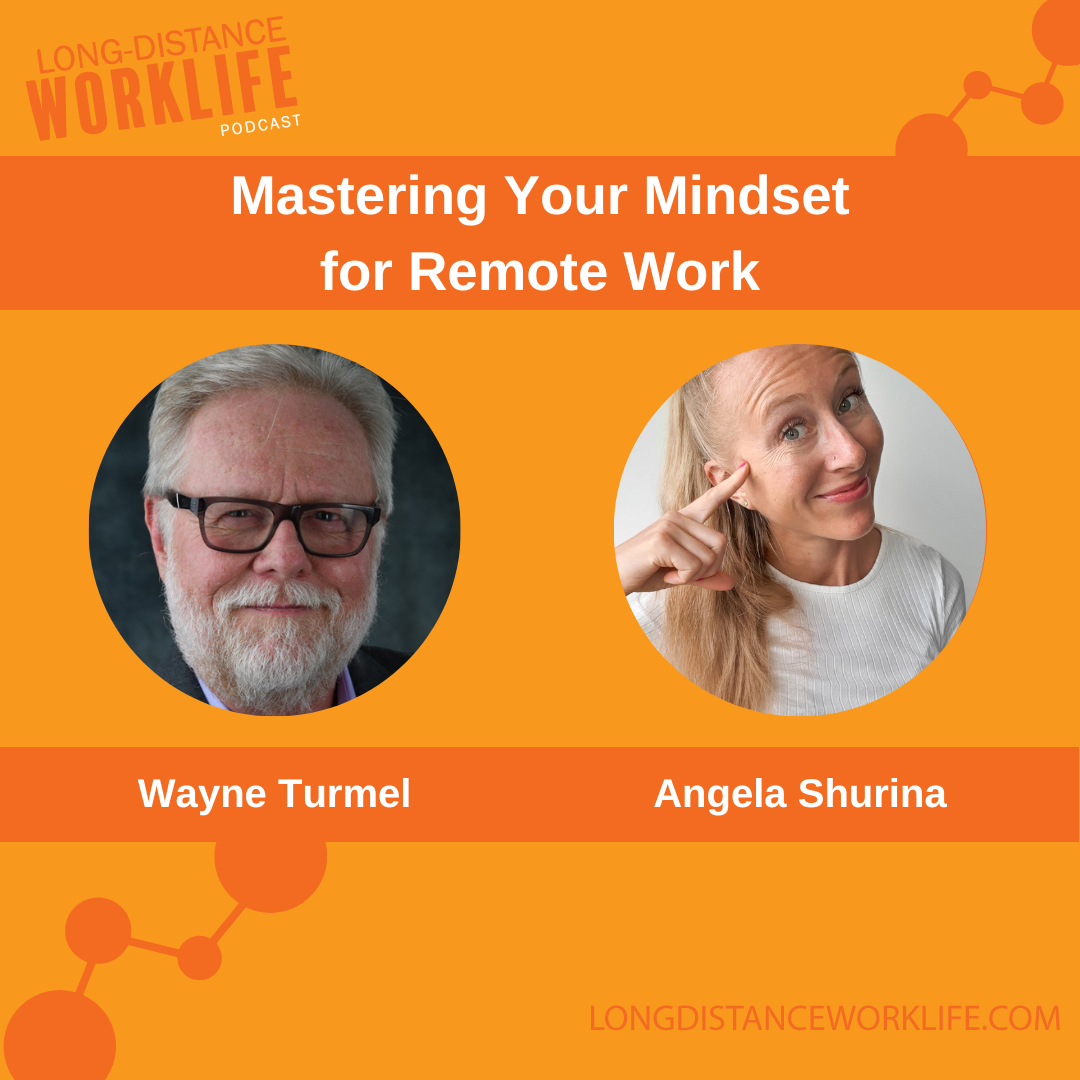Marisa dives into the virtual office platform SoWork, designed for immersive remote work experiences. With a mix of humor and insightful observations, Wayne and Marisa discuss the generational divides in adopting such technology and explore its unique features, from customizable avatars to proximity chats that mimic walking by someone's desk. Tune in to hear Marisa’s firsthand experiences, including decorating virtual offices for birthdays and the practical uses of these virtual spaces in remote work settings.
Key Takeaways
1. Experiment with Virtual Spaces: Consider how platforms like SoWork can enhance team interaction and cultural connection in your remote or hybrid teams.
2. Embrace Customization: Use customization features to make virtual offices more personal and engaging for team members.
3. Explore Hybrid Work Tools: For those managing hybrid teams, explore tools that bridge the gap between physical and virtual presence to maintain team cohesion.
4. Celebrate Virtually: Look for creative ways to celebrate team milestones and personal events to foster a sense of community and belonging, even remotely.
00;00;08;02 - 00;00;18;28
Marisa Eikenberry
Welcome back to Long-Distance Worklife. Where we help you lead, work and thrive in remote and hybrid teams. I'm Marisa Eikenberry, a fellow remote worker. And joining me is remote work expert, my co-host, Wayne Turmel. Hi.
00;00;19;00 - 00;00;20;19
Wayne Turmel
Hello, Marisa. How are you?
00;00;20;21 - 00;00;22;07
Marisa Eikenberry
I'm great. How are you.
00;00;22;09 - 00;00;25;11
Wayne Turmel
Feeling? My mortality.
00;00;25;14 - 00;00;28;10
Marisa Eikenberry
Well, that should be great.
00;00;28;13 - 00;00;51;18
Wayne Turmel
Generally, I generally think of myself as, you know, open to the world and still open to new experiences. And there are days when I realize that I am a grumpy old white guy who has been far more institutionalized in the traditional workplace than I thought I was.
00;00;51;20 - 00;00;54;09
Marisa Eikenberry
And then you've got me. I'm an old soul, so.
00;00;54;11 - 00;01;26;24
Wayne Turmel
Well, yes. And you still walk around in that 32 year old body interacting with 32 year olds, doing 32 year old things and the reason for this venting, dear listener, is we have been having conversations offline about some of the different meeting platforms out there. And I don't care if you zoom routines or WebEx or Joe's virtual meeting, I or whatever you use, I don't care.
00;01;26;26 - 00;02;00;28
Wayne Turmel
But there is a trend to more of a virtual reality video game style, and it makes me break out in a rash. And I have been told I am wrong and wrong necessarily. I am firmly prepared to believe that it is generational right. This is just one of those things. I don't play video games unless you count Frogger on a, you know, bar tabletop, I guess.
00;02;00;28 - 00;02;24;24
Wayne Turmel
Right. But that was like the last cool game that I played. So Marisa has actually tested out a number of these platforms. And we're going to talk about what they bring to the table, what she likes, what she doesn't like. And she's going to try to convince me at least somewhat that the dark side is not completely dark.
00;02;24;26 - 00;02;40;18
Wayne Turmel
So we're going to talk about the gamification, the virtual reality kind of approach to some of these meetings and are they going to make a difference in how we do our work. So, Marisa, why don't you start with what have you been up to?
00;02;40;20 - 00;03;14;26
Marisa Eikenberry
Yeah, So we actually got an email from somebody about a program called SoWork, and I looked into it because I think the tagline on the for the subject line was something about, you know, start your work guild here or something. I'm like, That's gamer language. Like, I need to open up this email, right? So I was checking it out because basically that whole idea so work is that it was built by gamers to have a virtual office and to be able to intermingle in all the good office stuff remotely.
00;03;14;29 - 00;03;23;24
Marisa Eikenberry
I'm a gamer myself, so I reached out to you and I was like, Pick me, choose me. I volunteer as a tribute. Let me test this out.
00;03;23;27 - 00;03;34;13
Wayne Turmel
Yeah. As opposed to me who? And I would rather poke a red hot iron in my eye than do this. So bless your heart for. For doing.
00;03;34;18 - 00;03;47;00
Marisa Eikenberry
And with that, too, like, as I was, you know, having this moment of, okay, I really want to test this out. It was also an instant art will not test this with me. I need to go find other people who will. And that's okay.
00;03;47;01 - 00;03;49;14
Wayne Turmel
You need to go find your tribe. Go in, do.
00;03;49;16 - 00;04;14;03
Marisa Eikenberry
And that's okay. So I volunteer with a the world's first online church for gamers. Yes, that is a phrase I just said. But anyway, I knew that these are people who they're online all the time. Gaming is their thing. Like they're more likely to test this with me. So I posted it in the media team that I volunteer with, and I was like, Hey, I'm testing this out for work.
00;04;14;03 - 00;04;21;06
Marisa Eikenberry
You guys are under no obligation to check this out, but it would be really cool if you did. And they loved it.
00;04;21;08 - 00;04;22;10
Wayne Turmel
Of course they did.
00;04;22;17 - 00;04;30;18
Marisa Eikenberry
Loved it. At first they were just testing out some stuff that I was, you know, testing in a test server. How many times they tested. Okay.
00;04;30;19 - 00;04;38;03
Wayne Turmel
Now, first of all, my first thought is, of course, they loved it. These are people who can't be bothered to get out of their pajamas to go worship.
00;04;38;04 - 00;05;03;17
Marisa Eikenberry
That's a whole different We are meeting the people where they are. But that is that is a different discussion. But, you know, and the people that that I was testing with, you know, there are people that we were on a team together. We're volunteering together. We work together all the time. So I started testing it with them. The director of media team was like, This is awesome, shared it with staff, and now the church created a server.
00;05;03;19 - 00;05;12;10
Marisa Eikenberry
We're still testing out how it works, but it's pretty much staff and media team and we've had a blast with it. It's just it's been incredible.
00;05;12;14 - 00;05;23;02
Wayne Turmel
Okay, now for those of you watching, Marisa will have screenshots and things. The rest of you just have to play along. Use radio of the mind.
00;05;23;05 - 00;05;24;09
Marisa Eikenberry
Or check out the YouTube video.
00;05;24;14 - 00;05;42;28
Wayne Turmel
Or check out the bay and we will have links to all of the stuff in the show notes. So, okay, so you're creating a guild, you're doing a meeting. What does that start with? What it looks like? Yeah. And then talk to me about the impact and how it actually works.
00;05;43;01 - 00;06;05;28
Marisa Eikenberry
Yeah. So they have a couple different maps, I guess you could say to start out with. But we actually created one from scratch. But it looks like an office building and it's very top down kind of look. And so you can make a room over here and this is the kitchen and this is your office and these are cubicles over here, and this is a meeting space and a co-working space.
00;06;05;28 - 00;06;28;03
Marisa Eikenberry
And you can kind of make whatever you want, but it does look a lot like an office. If you had no ceiling on it. And you're looking right and everybody has a little avatar that you can customize, you know, hair outfit, whatever, change it as much as you want to. And and you walk around.
00;06;28;06 - 00;06;38;02
Wayne Turmel
Yeah I, I avatars freak me out in general. I'm not sure I'm ready to have a performance evaluation with an art book.
00;06;38;04 - 00;07;07;11
Marisa Eikenberry
Thankfully, they're not like that. All of them are human. I mean, you can, you know, change your hair color to be something different or whatever. You can have different types of costumes, and some of those are premium features. And so we were just on a free server. But yeah, I mean, you can, you know, throw a guitar on your back, throw, you know, I think they have like swords, so you can't get a little goofy with that.
00;07;07;13 - 00;07;10;01
Marisa Eikenberry
But no, no orcs this time.
00;07;10;03 - 00;07;14;29
Wayne Turmel
Okay, So at least we're talking human to human contact. Well.
00;07;15;02 - 00;07;35;28
Marisa Eikenberry
But it's interesting that you say that, though, because from my understanding, the people who created this part of the whole thing was that they had a team. I think they were Harvard creating like a business and 2020 happened. So suddenly their team became remote and they couldn't figure out how to get this culture piece and this connection piece to happen.
00;07;35;28 - 00;07;59;00
Marisa Eikenberry
And they were like, okay, we we play World of Warcraft. We know that this is possible to do online and it's in that piece is something I've been saying on LinkedIn for a long time for people who follow me there. But you know, gamers know how to connect online with people that they've never met. And so they were trying to figure out how how do we bring that into the remote work space?
00;07;59;00 - 00;08;14;29
Marisa Eikenberry
And so work was born. I'm pretty sure that it launched the public last year. So there's still a lot of beta stuff that's happening. There's still some glitchy stuff that's happening occasionally, too, and they're changing stuff all the time. Even in the months that I've been testing it, they've had so many different updates.
00;08;15;02 - 00;08;22;22
Wayne Turmel
This is voice to voice. So when you and I are having a meeting, our avatars are sitting in chairs, but we're talking.
00;08;22;24 - 00;08;38;16
Marisa Eikenberry
Yes. And you can't have cameras up. So you still can have a webcam up and be talking and you can actually like click a button and like not see any of the office space. If you didn't watch it, you just really wanted to focus on the meeting and then it would look like it looks like right now to us, you can't do that.
00;08;38;16 - 00;08;55;04
Marisa Eikenberry
But yes, you're correct. Like, you know, you go sit in chairs in the meeting room or they have proximity chat so people can actually like walk by your office. And as long as they're close to you and you don't have your do not disturb on, it'll automatically connect and start a conversation.
00;08;55;06 - 00;09;29;17
Wayne Turmel
Now, that's interesting to me because one of the big complaints about remote work or hybrid work is and I just had a flash on how this applies to hybrid work, but you don't have the incidental somebody walking by your desk and your brain goes, I need to talk to them. What you're telling me is this is running in the background all the time and you get some form of alert that says Marisa is walking past your office or Marisa is around and you go, Do I need to talk to Marisa?
00;09;29;17 - 00;09;33;05
Wayne Turmel
No, I can continue to ignore her or. Yeah, right.
00;09;33;08 - 00;09;54;27
Marisa Eikenberry
So physical, different ways that it can happen. So like, I have it minimized right now, like I'm in do not disturb mode because obviously we're podcasting, but if somebody walked by my desk and, like, got close enough to me to actually trigger that proximity chat, I actually get like a window that pops up in front of me that says, you know, somebody, whoever their name is, is connecting to you.
00;09;55;00 - 00;10;04;21
Marisa Eikenberry
And so that way I know to go back into that platform and I can actually see what's going on. But I mean, it is a very automatic connection.
00;10;04;23 - 00;10;26;25
Wayne Turmel
But where I had the flash about hybrid work is the big thing is we're out of sight, out of mind for each other. Right? Like, if I'm in the office today and you're not, I look around and I'm generally talking to the people. And if I have a question, I go to the people in the office and go, Hey, before I start typing and chatting and Marisa's around.
00;10;26;28 - 00;10;47;10
Wayne Turmel
Theoretically, if this is running in the background while a team's working, you can still get the proximity notices and you can still see that so-and-so is working and available even if they're not in your physical space. Right? That is kind of intriguing, I guess.
00;10;47;13 - 00;11;06;12
Marisa Eikenberry
Yeah, because since you could see the whole office at once. So they have like a WhatsApp opening menu basically. So you can see who's all online. If they have a status up, you can see what that status is. There is a chat feature. So right now it's kind of like Slack. They're about to update it. I haven't seen what the update looks like yet.
00;11;06;12 - 00;11;22;19
Marisa Eikenberry
I'm very excited to see that. So you can say like a message notification or something if you needed to that way, but you could see who's online and if you zoom out, you could actually see where they are in the map. So you could just like go over to them if you needed to get a hold of them or something.
00;11;22;26 - 00;11;48;18
Wayne Turmel
Yeah, I, I get that. I mean, I get how that can work. And by the way, we're talking specifically about SoWork. There are a number of other similar platforms out there, Remo and some others that. So we're not advocating for one versus the other, but we will have links to a couple of these things so that if you're listening to this and you're intrigued, you can certainly check it out.
00;11;48;24 - 00;11;55;00
Wayne Turmel
So why does this whole idea creep me out?
00;11;55;02 - 00;11;58;03
Marisa Eikenberry
Well, that might be a whole separate discussion.
00;11;58;06 - 00;12;26;11
Wayne Turmel
Well, no, it's a very simple discussion, which is, as a 62 year old man, even one who is reasonably technology savvy. I don't interact a lot. I mean, Alexa sits beside us in the TV room, and the main function that Alexa serves for us is Alexa. How tall is Tom Cruise? And we get the answer and I say, Thank you, Alexa.
00;12;26;14 - 00;12;28;15
Wayne Turmel
And that's the end of that, right?
00;12;28;22 - 00;12;30;00
Marisa Eikenberry
Meanwhile, I have a staff.
00;12;30;07 - 00;12;48;18
Wayne Turmel
Of homes and lives. Yeah, right, exactly. And you know, the movie Demon Seed came out in 1975, and people with smart houses should see it before you get smug, is all I'm saying. And I was young enough to see it and be scarred by it.
00;12;48;20 - 00;12;53;09
Marisa Eikenberry
My mom was four, so.
00;12;53;11 - 00;12;58;10
Wayne Turmel
And this has been a blessing. Makes the last episode so much.
00;12;58;10 - 00;13;04;00
Marisa Eikenberry
My last episode. You don't know what my name is, what I.
00;13;04;02 - 00;13;47;09
Wayne Turmel
But all of this silliness and you know, there is while there is an element of fun to this, which is part of the point, right, is to add some fun and lessen the formality for all of this. But for people of a certain age, our relationship with technology and our willingness to interact using technology, to me, I can get on Zoom and I can talk to you and I can see you and I can talk to you if I need to push three buttons to get your avatar to show up and I'm still not talking to you, that seems like more work than the benefit is worth.
00;13;47;16 - 00;13;52;22
Marisa Eikenberry
It's actually pretty easy. I mean, I'm not going to like, sit here and be like, This is forever.
00;13;52;23 - 00;13;55;00
Wayne Turmel
No, no, no. I know you're not selling for anybody.
00;13;55;00 - 00;13;57;13
Marisa Eikenberry
But yeah, because. Because you are trying to talk.
00;13;57;14 - 00;13;58;21
Wayne Turmel
This man off the ledge.
00;13;58;27 - 00;14;16;24
Marisa Eikenberry
Yeah, because I don't think that this is good for every team. I really don't. I do think there's a certain level of some of it's generational. Some of it's just what you interact with normally. You know, if you're somebody who's a little bit more perpetually online, you're probably going to enjoy this a little bit more like that kind of thing.
00;14;16;27 - 00;14;37;08
Marisa Eikenberry
For the most part, getting on a video call or an audio call. With this platform, it's it's really easy. Not only can you just walk up to somebody and it starts something instantly, but you can also, you know, let's say I scheduled a meeting with you and I'm like, okay, you know, Wayne, we're going to have a meeting at 1 p.m., You know, we'll meet in the meeting room.
00;14;37;11 - 00;14;47;06
Marisa Eikenberry
All you have to do is walk your avatar over it in the meeting room, and the second you cross the threshold into that room, it automatically starts the meeting. You have to click nothing.
00;14;47;08 - 00;15;09;16
Wayne Turmel
You know, it's so funny because I am listening to you and my brain is processing the information and the idea of the proximity alert, Right? Marisa's walking by my desk. I'm thinking that's really intrusive and annoying. But then I think about being in the office and having Marisa walk by my desk and I go, That's really intrusive and annoying.
00;15;09;23 - 00;15;10;05
Wayne Turmel
Yeah.
00;15;10;07 - 00;15;15;08
Marisa Eikenberry
Well, and you have to be pretty close for that to trigger, right? Because I know that when they have to.
00;15;15;08 - 00;15;16;05
Wayne Turmel
Want to be there.
00;15;16;11 - 00;15;37;09
Marisa Eikenberry
Yeah. Because like we were the media team, like we were trying to figure out our desks and stuff and like, you can, you can add a bunch of furniture and you can add your computer and they have like gamer looking computers in there. And so as we were putting notes in, I know I tested with a friend of mine that's also in that team to be like, Hey, you sit down and I'm going to sit down and make sure that we don't trigger the proximity chat.
00;15;37;09 - 00;15;49;23
Marisa Eikenberry
Otherwise we may have to change where our computer sit. And thankfully it worked out the fine. But yeah, you have to be pretty close for that trigger. So it's not quite just, they walked right by your door. It's they're in your office.
00;15;49;26 - 00;15;51;04
Wayne Turmel
Yeah, they're in your space.
00;15;51;04 - 00;15;52;16
Marisa Eikenberry
Intentionally correct.
00;15;52;18 - 00;16;07;09
Wayne Turmel
Well, this is fascinating. And for those of you who are listening, I imagine some of you are horrified and appalled. And if so, your AARP card is in the mail for it.
00;16;07;11 - 00;16;27;22
Marisa Eikenberry
Can I get you one thing before we start to wrap up, though, that I think was really cool. And we talk about this concept all the time about when you're when you're remote, there's no cake in the breakroom. That's not a thing anymore. It's not cake. But one of the things cell work also allows you to do, and I'm sure some of these other platforms do as well.
00;16;27;24 - 00;16;36;10
Marisa Eikenberry
This is just the one that I've tested the most, is you can decorate somebody's office for their birthday or whatever. So I had to.
00;16;36;16 - 00;16;38;02
Wayne Turmel
Tell us the story. This is great.
00;16;38;07 - 00;16;58;28
Marisa Eikenberry
Yeah. So I had a birthday a couple weeks ago and I walked into the office and went over to my cubicle and I'm going to show a picture of it here on the screen. But I had balloons and cake and stuff everywhere, and I thought it was great, you know? I mean, I was able to move some stuff around and still get to my desk and I thought it was so cool.
00;16;58;28 - 00;17;31;05
Marisa Eikenberry
I kept it the whole day. And then we actually had another media team member that their birthday was the following day. So I basically moved everything in my office over to there the next day. And even while that was happening, like there was another person who they were on vacation. So we threw like a hammock and a sandcastle and a palm tree in their office because we just thought it was funny, but it was this other way of like showing culture and showing that you care about somebody else without necessarily hopping on a meeting or sending a message or, you know, taking up this extra time.
00;17;31;08 - 00;17;36;17
Marisa Eikenberry
But I saw that and felt so special and it probably took them 5 minutes to do.
00;17;36;20 - 00;17;42;15
Wayne Turmel
And they also just pulled a prank that backfired on them because you thought it was hysterical.
00;17;42;15 - 00;18;04;23
Marisa Eikenberry
That is true. And when we were first testing staff way before my birthday even happened, I walked into my testing office and had pumpkins everywhere. And apparently I was supposed to be annoyed by this. I thought it was so great. I took a screenshot and showed it as a LinkedIn lesson. No culture in a virtual space. Yeah. So.
00;18;04;25 - 00;18;06;07
Marisa Eikenberry
00;18;06;09 - 00;18;36;22
Wayne Turmel
Which is great if you live in a medieval farming village where swapping gourds is a symbol of affection. Anyway, we will have links to demos and stuff. We will have links to screenshots. Those of you watching on video will see the finished product with the screenshots built in. I am slightly less horrified than I was going in. I dare I say almost intrigued.
00;18;36;24 - 00;18;41;13
Marisa Eikenberry
But thank you. Let me know. I'll get on a meeting. I'll. I'll walk you around the office.
00;18;41;15 - 00;18;45;29
Wayne Turmel
Thank you for sharing that, Marisa. I really appreciate that.
00;18;46;01 - 00;18;47;08
Marisa Eikenberry
My taking it away.
00;18;47;11 - 00;18;48;24
Wayne Turmel
You're taking it home, lady.
00;18;48;24 - 00;18;50;28
Marisa Eikenberry
I'm okay.
00;18;51;00 - 00;18;54;01
Wayne Turmel
I'm old. I'm tired.
00;18;54;03 - 00;19;19;08
Marisa Eikenberry
Fair. Meanwhile, I'm parked in my virtual office. so while we don't talk about virtual offices in this way, we do talk a lot about remote work and how to work remotely well. And we do that with our Long Distance Leadership series, which you can learn more about at Kevin Eikenberry dot com forward slash LDLS. And thank you so much for listening to the long distance work life for shownotes transcripts and other resources.
00;19;19;09 - 00;19;39;11
Marisa Eikenberry
Make sure to visit long distance work dot com if you haven't yet, subscribe to the podcast so you won't miss any future episodes while you're there. Be sure to like and review. This helps us know what you love about our show and feel free to contact us via email or LinkedIn with the links in our show notes. Let us know you listen to this episode or suggest a topic for Wayne and I to tackle in a future episode.
00;19;39;14 - 00;19;44;16
Marisa Eikenberry
And if you have more things like this for me to test, let me know. Thank you for joining us.
00;19;44;23 - 00;19;46;25
Wayne Turmel
Guinea pig at the Kevin Eikenberry Group.
00;19;47;02 - 00;19;58;03
Marisa Eikenberry
I mean, I am nothing if not an eager beaver like I. But thank you so much, listeners, for joining us. And as we like to say, don't let the weasels get you down.
Timestamps
00:00 Introduction
02:40 Exploring SoWork
06:05 Customization and Interaction
09:29 Hybrid Work Integration
16:07 Cultural Touches and Virtual Celebrations
18:36 Conclusion
Related Episodes
Additional Resources
- SoWork
- Remo
- Other Virtual Office Platforms
- GodSquad Church - World's First Church for Gamers
- Long-Distance Leadership Series
- Learn more about Wayne Turmel
- Email Wayne Turmel
- Connect with Wayne Turmel on LinkedIn
- Learn more about Marisa Eikenberry
- Email Marisa Eikenberry
- Connect with Marisa Eikenberry on LinkedIn
- Purchase a copy of The Long-Distance Leader
- Purchase a copy of The Long-Distance Teammate
- Purchase a copy of The Long-Distance Team
- The Kevin Eikenberry Group
Order The Long-Distance Team
Remote leadership experts, Kevin Eikenberry and Wayne Turmel, help leaders navigate the new world of remote and hybrid teams to design the culture they desire for their teams and organizations in their new book!


